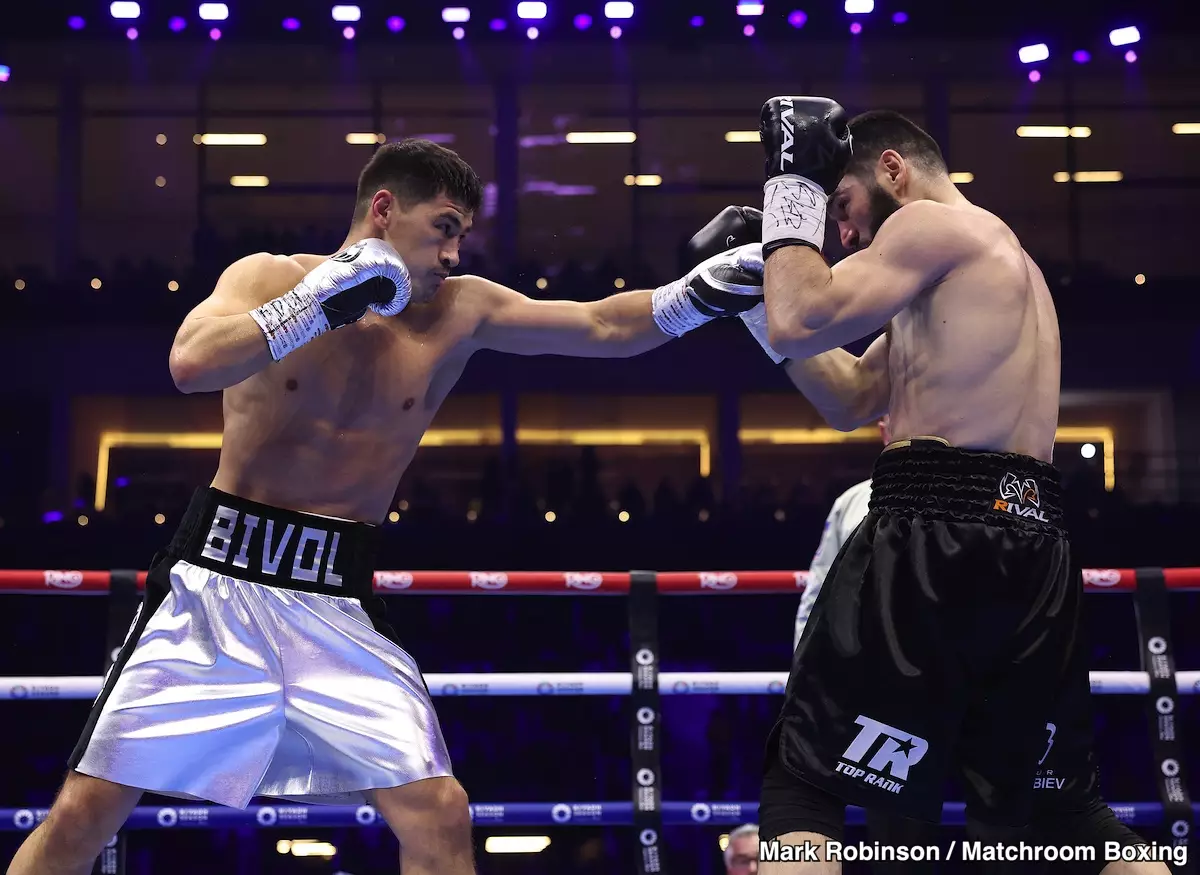In a highly anticipated rematch on Saturday evening at the Kingdom Arena in Riyadh, Saudi Arabia, Dmitry Bivol (24-1, 12 KOs) faced off against the reigning undisputed light heavyweight champion, Artur Beterbiev (21-1, 20 KOs). Bivol emerged victorious with a close majority decision after 12 hard-fought rounds, but the bout itself left spectators wishing for more action. While the stakes were undeniably high, with the potential for a future trilogy fight fueling speculation, the execution of Bivol’s strategy resulted in a match that was as much about survival as it was about skill.
Bivol’s performance was characterized by a defensive style that prioritized evasion over engagement. Throughout the bout, he exhibited impressive lateral movement, adeptly maneuvering around the ring and attempting to avoid Beterbiev’s powerful punches. However, this strategy muted the excitement of the match, leaving the audience uninspired. Rounds passed with Bivol darting away from Beterbiev’s advances, crafting a narrative rooted more in evasion than exchange. This tactical approach was effective in securing his win, but the energy in the arena quickly dwindled, leaving fans feeling like silent observers rather than invested participants.
The fight concluded with contentious scorecards: 114-114, 116-112, and 115-113, reflecting the close nature of the contest. Many observers noted that if one were to assess the rounds by their essence, Beterbiev had a strong case for a draw, having arguably secured at least six rounds. Bivol’s victory, albeit justified by the unique demands of the fight, stirred debate over the legitimacy of his strategy. While it may serve his career and satisfy promotional interests for a third fight, the manner in which this match unfolded throws into question the evolution of competitive boxing.
A striking observation from the match was Bivol’s physical transformation compared to their first encounter. He appeared lighter and at times less robust, as if his focus had shifted away from power striking towards maintaining a dynamic defensive rhythm. His punches lacked significant force, likely a result of his commitment to evading Beterbiev. Yet, what he lacked in raw power, Bivol compensated for with speed and technique, reminiscent of today’s prominent defensive specialists like Shakur Stevenson. He employed rapid-fire combinations, often landing just to retreat and evade danger promptly.
Interestingly, this fight’s outcome seems beneficial for both boxers. With Turki Alalshikh vocalizing a desire for a trilogy bout, Bivol’s victory avoids a swift end to their rivalry. Such developments reveal the intricate ties binding competitiveness and commercial viability in boxing. While purists may yearn for unyielding exchanges within the ring, the tactical choices made by fighters can ultimately sculpt their legacies, but perhaps at the cost of fan engagement.
As the dust settles on this rematch, it’s clear that Bivol’s approach is indicative of a broader trend in boxing, emphasizing strategy and longevity over brawn. As fans await the potential trilogy, one can only hope future matchups bring back the exhilarating exchanges that make boxing a celebrated sport rather than a tactical chess game. The effectiveness of Bivol’s style may have led him to victory, but the spirit of boxing lies in delivering unforgettable moments that resonate well beyond the scorecards.


Leave a Reply